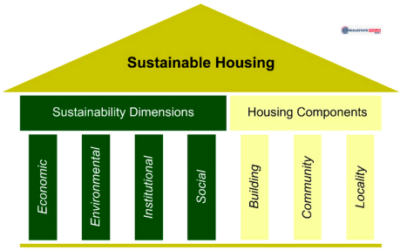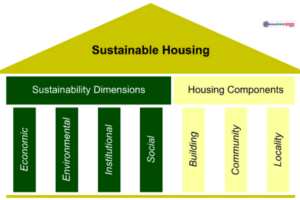

Argosy Real Estate Partners Project Shows Positive Economic Impact and Job Creation
Argosy Real Estate Partners has conducted a detailed analysis of its investments in Qualified Opportunity Zones (QOZs), which are areas designated by the U.S. government for economic development. The analysis reveals that these investments have contributed to creating jobs and enhancing the economic conditions of the areas involved.
Through its targeted real estate projects, Argosy has helped drive growth in communities that are often in need of revitalization, supporting long-term economic improvements. Qualified Opportunity Zones are strategically located areas in the United States that are eligible for tax incentives to attract investment.
These zones have been identified by the government as places where economic development is needed to improve living standards and create sustainable growth. Investors who put their money into projects in these zones can receive substantial tax breaks. Argosy’s investments in these areas demonstrate how real estate development can create a positive cycle of growth by improving infrastructure and attracting more business to these communities.
The real estate projects that Argosy has been involved in within these Opportunity Zones include both commercial and residential developments. These projects have added new buildings and spaces for businesses to operate, as well as new housing options for local residents.
As the real estate projects have progressed, they have not only provided a direct impact on the local economy but have also led to improvements in the overall infrastructure of the area. These developments make the areas more attractive to other investors and residents, contributing to long-term growth.
Job creation has been one of the most direct outcomes of Argosy’s investments. During the construction phase of the projects, workers are hired to build the properties, providing short-term employment and supporting local construction businesses. Once the buildings are complete, they house businesses, which create long-term jobs for people living in the community.
These jobs can range from administrative positions to skilled labor, offering a wide range of employment opportunities. This influx of jobs not only benefits those employed directly but also helps boost local spending and supports nearby businesses.
In addition to providing jobs, Argosy’s investments in QOZs have had a positive ripple effect on local businesses. By developing commercial properties, Argosy is able to attract new businesses to these areas, which, in turn, hire more workers and create additional economic activity.
This increased demand for goods and services strengthens the local economy, benefiting everyone from small local businesses to large retail chains. As these businesses grow, the areas they serve become more prosperous, and the cycle of economic development continues.
Another important aspect of Argosy’s QOZ investments is the improvement in the quality of life for residents. By adding new commercial properties, retail spaces, and housing, Argosy has helped provide more modern amenities and services for the communities.
This includes better access to healthcare, shopping, and other essential services. As a result, local residents are able to enjoy a higher standard of living, and new residents are attracted to the area, further driving development. These improvements can also lead to an increase in property values, benefiting homeowners and contributing to the overall economic health of the community.
Argosy’s focus on areas that need development aligns with its broader investment strategy, which emphasizes creating value for both the investors and the communities in which it operates. The company targets Opportunity Zones where its investments can make the most significant difference, ensuring that its projects meet the needs of the local population while offering strong returns.
By carefully selecting these areas and developing them thoughtfully, Argosy aims to make a lasting positive impact on both the local economy and the real estate market. The company’s approach to Opportunity Zone investments highlights how real estate development can serve as a tool for economic and social change.
Real estate developers like Argosy have a unique opportunity to contribute to community revitalization by focusing on areas that need investment. In doing so, they help create jobs, boost local businesses, and improve the overall standard of living. These benefits extend beyond the immediate community, as stronger economies lead to greater regional stability and growth.
Argosy Real Estate Partners has seen a positive response from its investments, with many of its projects showing measurable economic impact. These results show that Opportunity Zones can be a valuable tool for both investors and communities. As other companies see the success of Argosy’s approach, more may follow in investing in these areas, further contributing to national economic growth.
The company’s commitment to investing in Opportunity Zones is an important part of its broader goal to use real estate as a means of economic development. The success of Argosy’s investments in these areas has proven that real estate can be more than just a profitable business—it can also play a vital role in rebuilding and strengthening communities.
By continuing to focus on job creation and economic impact, Argosy Real Estate Partners is helping to shape the future of the real estate industry while making a meaningful difference in the areas it invests in. Looking ahead, Argosy plans to continue expanding its portfolio in Opportunity Zones, confident that these investments will generate positive returns both for its investors and for the communities involved.
As more areas across the country benefit from similar investment strategies, the overall economy is likely to experience increased growth, job creation, and improved quality of life. The success of Argosy’s projects demonstrates how real estate investment can have a broad, positive impact that extends beyond financial returns.




































